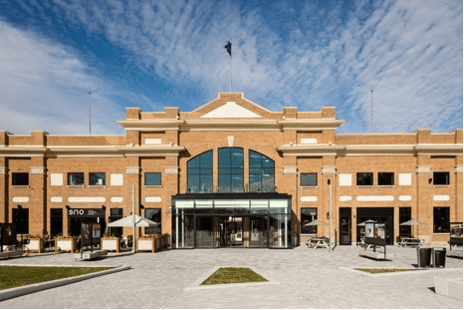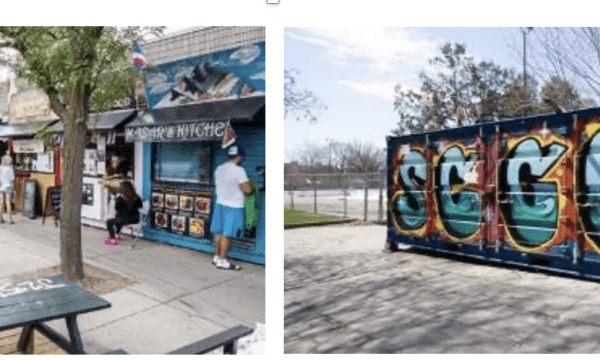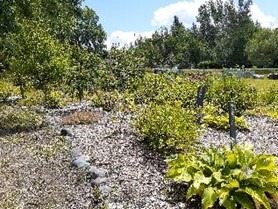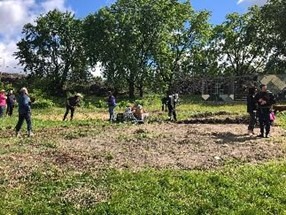Delki Dozzi gardens – Sudbury
“I will highlight the Delki Dozzi gardens in the west end of Sudbury. This is an area on the edge of a larger community park. It includes:
-An edible forest garden (planted and cared for by volunteers through Sudbury Shared Harvest). This is the first and largest edible forest in Sudbury. Now 5 years old, it is very beautiful, produces a lot of food, and is a source of seeds and cuttings (edible and pollinator plants) to create new gardens around the city. Handmade and handpainted plant ID signs, painted rocks along the curving clover paths, and quirky art among the plants all create a welcoming, delightful and pleasing experience. People gather there informally, and for workbees and workshops.
-A community garden. Planted and cared for by volunteers of all ages from the neighbourhood and wider community, fun community garden beds grow food, teach gardening skills, and bring people together. Neighbourhood school kids grow seedlings to add to the beds. People come together to care for the garden and to share food. People have contributed their skills, labour and ideas to create an innovative rainwater irrigation system, and an artistic garden shed. Work is being done to make the garden and garden beds accessible, and bring accessibility to other local community gardens.
-Global Garden’s bed. The circular garden grows food traditional to several countries anchored by Indigenous medicine plants at the centre. People come together to prepare, plant and care for the garden, share food, recipes, and advice. Global Gardens brings together new Canadians, long-time residents, and Indigenous gardeners and elders to grow food and medicine familiar to them, and share growing & food preparation skills, stories, and meals.
-Large trees create shade where people rest, have picnics, or sit to talk.
Together, these three gardens make a beautiful, welcoming and vibrant space where people are gathering, making positive things happen together, forming relationships, collaborating, meeting new people and new ideas, and contributing to the neighbourhood and neighbourliness. They also contribute to the ecological health of the area, adding biodiversity, native seed sources, habitat, rainwater capture and filtration, etc. This is especially important in our community, and in this specific area due to the historic Industrial impacts on the natural environment. There is a city-owned field house nearby that can be used for meetings, workshops, etc. It would be a big benefit if this small building (and the washrooms, sinks, etc) were always available to people working in and visiting the gardens.” (Booklet Positive Lived Experiences of Quality in the Built Environment 2023, p.200).
Google map link:
Discover similar lived experiences




